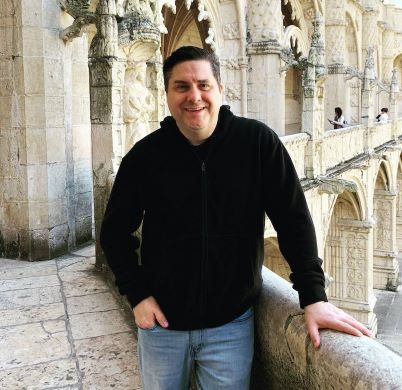CUSE Spotlights
Anthony Spencer

“In the humanities and the social sciences, students don’t tend to think that they’ve done research,” says Professor of Communications, Anthony Spencer. “In STEM they tend to know they have, because that’s been made clearer to them. I think the key thing is to get non-STEM students to learn that what they're doing in their classes is research, and then to teach them how to share what they've found, so that they know they’re capable of that scholarship.”
Spencer teaches courses in research methods for undergraduate students from a wide variety of majors, from Advertising and Public Relations, to Film and Video, to Global Studies and Social Impact.
“I always ask students to carefully articulate their research question, then show the method of how they collected data,” said Spencer. “Once they understand what they’ve done in those terms, they feel more confident. In the humanities, that data can take a lot of forms. It could be interviews, it could be analyzing a film, a book, a speech. It could even be an autoethnography of their own experiences.”
An autoethnography is a form of qualitative research that examines a broader sociopolitical topic through the lens of self-reflection. Where traditional empirical research tries to limit a researcher’s inherent subjectivity, an autoethnography centers and analyzes it.
“I have a student right now who is doing a critical autoethnography on their own lived experiences as a part of the LGBTQIA+ community, which I think is really important,” Spencer says. “I asked this student to look at journals, to look at photos. Show me the evidence of that progression in your own gender identity, and how you interact with other people. Do people call you by your preferred name, do people recognize your preferred gender? Or do they call you by your deadname and the gender you were assigned? It's such a personal project that we’ll have to discuss how much they’re comfortable presenting. But I hope they do— an autoethnography speaks to how your experience matters, and I think we forget that.”
Not all researchers conducting autoethnographies conceptualize the evidence they collect as data, but Spencer finds that approach more helpful for non-STEM students who are still learning to view their work as scholarship.
“They tend to think, oh, there’s no way that I could do research,” says Spencer. “But no matter what field— anthropology, sociology, communication, fine arts, theater, music— you can find small things that interest you in your own life for you to investigate. A project could be studying communication within your family, examining the repercussions of a film, finding a new way of interpreting an Ancient Greek text for the 21st century. I can't think of an area of study where students couldn't benefit from Student Scholar's Day, or Student Summer Scholars, because we're all doing scholarship.”
Research experience has been shown to be valuable for students regardless of their field. In 2017, Drexel University researchers published a study on how STEM and non-STEM undergraduate students benefited from their faculty-mentored summer research program. Despite there being 52 non-STEM students to 230 STEM students, researchers found that both groups benefited equally in areas like problem-solving, confidence and independence, and the ability to work collaboratively with others. They concluded that future efforts at encouraging undergraduate research would be inadequate if not inclusive of non-STEM students.
“We need to encourage more professors to engage their students in research,” says Spencer. “I've seen that the professors at Grand Valley are really dedicated to helping their students and that the students are really anxious to learn. I fully support undergraduate research— I wish a professor had worked with me on a project when I was an undergrad. I honestly believe it can change lives.”
Interest Area(s)
Communications
Share this spotlight
Return to the listing of cuse spotlights.

